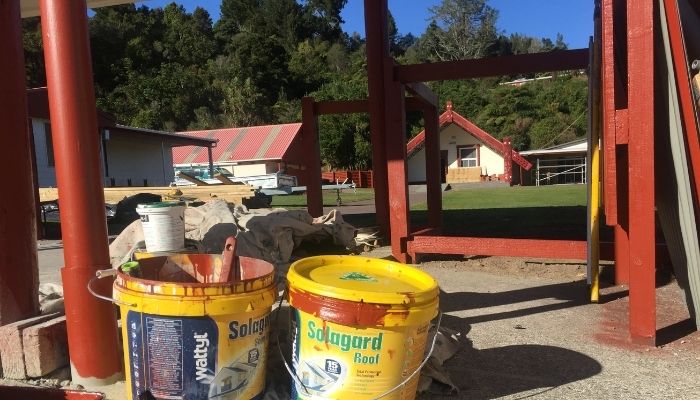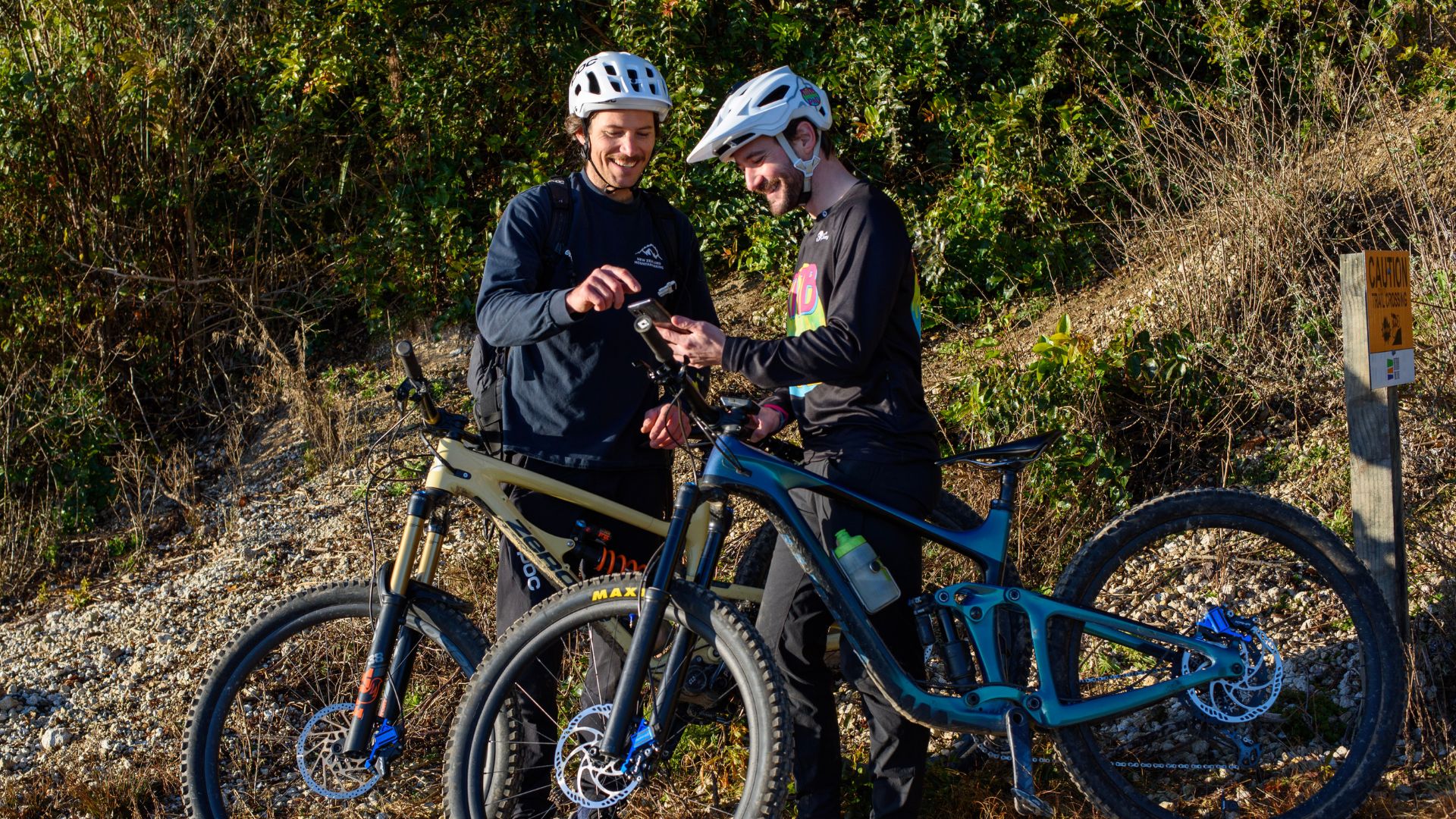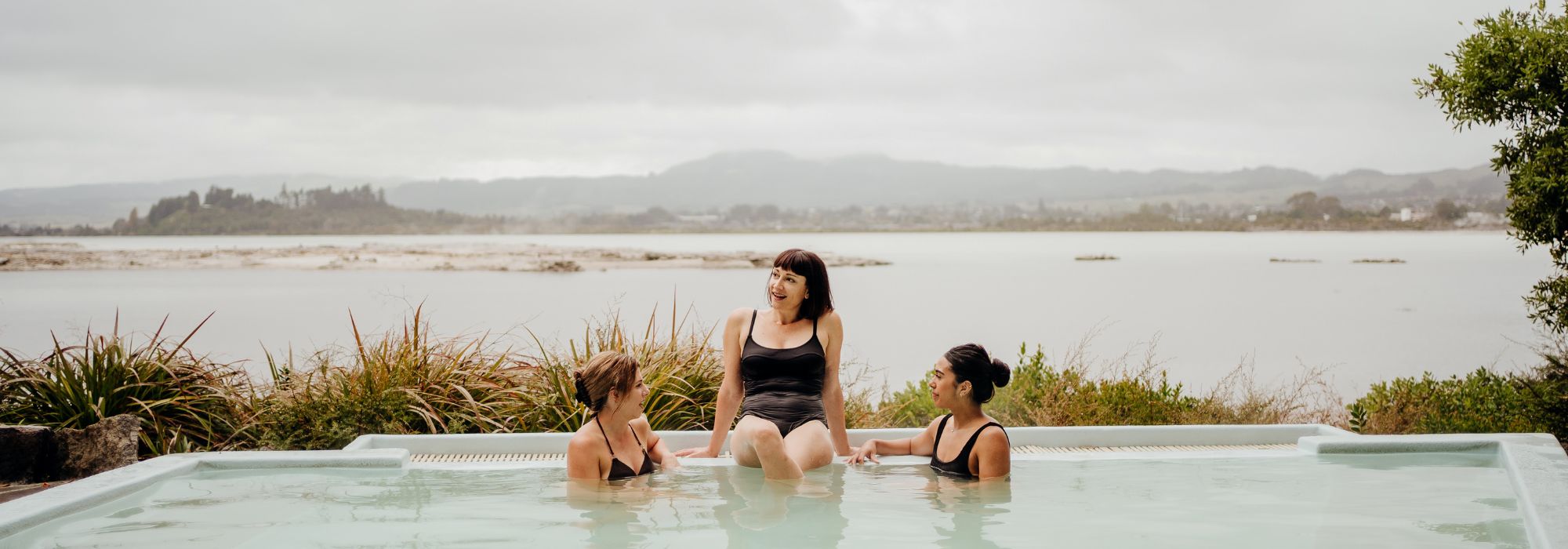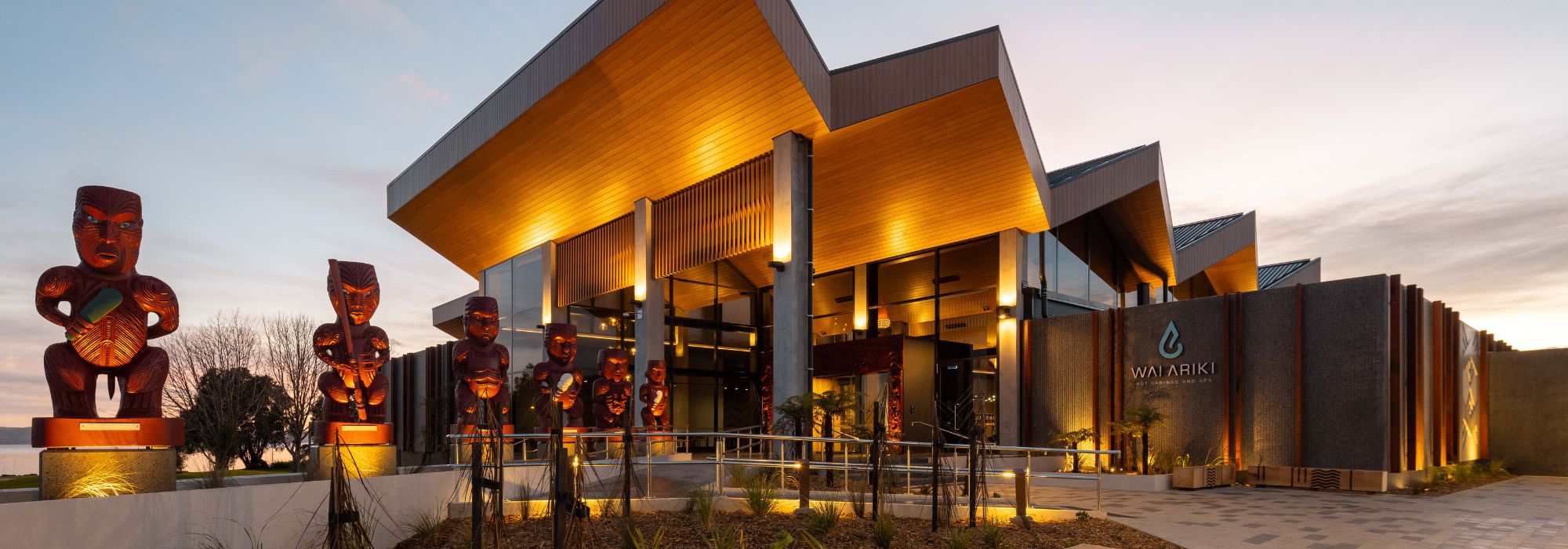Kristal Te Ua (pictured above with son Rapata) is one of just four women on the worksite at Tapuaeharuru Marae, but that hasn’t stopped her from exchanging a paintbrush and garden spade for a hammer and power tools – things she reckons will benefit her more in the future.
“I might build a mansion,” she said, laughing. But first she’ll start with renovations to her own whare, she said, as she’d love to build up to take in the views over her roto, Rotoiti.
Kristal is among the team of 15 (many are pictured below at Tapuaeharuru Marae) – which includes her teenage son Rapata – hired by Rotoiti 15 Trust to work on six marae in the area. They are referred to as kākahi, a nod to the freshwater mussel that lives within Lake Rotoiti, and was an important tool and food source for the tupuna of the area.
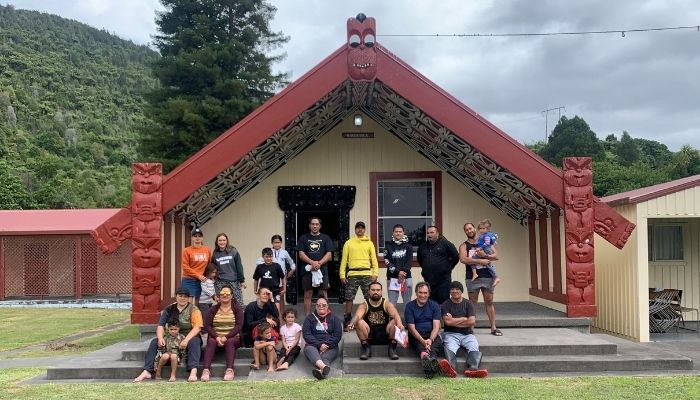 Rotoiti 15 was responsible for securing the $2.9m funding out of Government’s $100m Provincial Growth Fund (PGF) offered post Covid to finance the restoration of marae and create jobs nationwide. The Trust is also administering the funds and has elected to go 100% local regarding procurement of workers and supplies.
Rotoiti 15 was responsible for securing the $2.9m funding out of Government’s $100m Provincial Growth Fund (PGF) offered post Covid to finance the restoration of marae and create jobs nationwide. The Trust is also administering the funds and has elected to go 100% local regarding procurement of workers and supplies.Kerri Anne Hancock, te tauwharenga/general manager at Rotoiti 15, said, “The Trust looked at this as an opportunity to create employment for our ahikā whānau, our whānau who live in Rotoiti who whakapapa to those marae.”
The $2.9m will not only cover the salaries for the kākahi, but also the cost of construction materials, training and supervision by a contracted builder, a contracted technical advisor to ensure safety of the work, and tradies such as plumbers and electricians. All materials are being purchased as locally as possible, too, keeping the funding within the Rotorua rohe to support local businesses and economy.
“I think that one of the things the Trust and the marae did well, is they looked at how the renovation project would impact not only on the person who got the job, but their wider whānau and iwi, namely Ngāti Pikiao, Ngāti Tarawhai and Ngāti Rongomai.”
None of the kākahi have done this kind of work in professional capacity before. For some of them, including Kristal, this is their first job; others are returning to work after losing their jobs due to Covid, and some are turning a new leaf.
At the time we caught up with Kristal and her son for a chat, the kākahi were about to wrap up their work at Tapuaeharuru Marae. This was their second marae, following Te Waiiti Marae just a couple kilometres up the road. Because they’ve been quick to learn the trades, they’re ahead of schedule, capitalising on the funds they’ve received.
The Trust is “incredibly proud”, Hancock said, and getting positive feedback from everyone involved. “We all know our kākahi are amazing – they’re transforming their marae but you can also see the transformation within themselves as well.
“It’s important to note too that this kind of construction work traditionally lends itself to tāne, however we’ve got four wāhine on the team and they are widely acknowledged for their consistency, dedication and their ability to get the mahi done. I’m personally really proud of the fact that we have a great core group of women involved.”
The kākahi are supported by wrap-around services, sponsored by the Ministry of Social Development, and delivered by Te Rua Mauri and Te Rūnanga o Ngāti Pikiao. They have had wānanga on kaupapa such as nutrition, fitness, cultural and spiritual health and wellbeing. They’ve also created whānau ora plans, career development plans, and received help writing CVs, which the kākahi will need once the marae project finishes up early next year.
Hancock points out that renovating marae is not the Trust’s core business; its primary function is to care for and grow the Trust’s assets, and contribute to the wellbeing of those who whakapapa to the Trust’s whenua. For her, the marae renovation project has highlighted how the Trust can leverage their economic base and whakapapa connections to create opportunity for local whānau.
“We need to continue to think about how we can work together more and use our resources to create better outcomes for our people, and how we do it in a way that is guided by our own mātauranga.
“I think there’s a real story in how, with direct investment, Māori can achieve the same outcomes if contract managers had gone to the relevant industry, but you wouldn’t necessarily have had the same social outcomes.
“We want to show the Crown and ministers that when you directly invest in your Te Tiriti partners, we can not only deliver on the mahi, but we can support our whānau and strengthen our communities in the process.”
For Kristal, with her youngest child now in school, she got involved in the marae project because, “It’s part of who I am and where I’m from. I’m learning new skills and enjoying it at the same time.”
By the end of this year, she and her fellow kākahi will have the knowledge, skills and experience to seek jobs in the trades once the marae projects are finished at the end of the year. She and Rapata say they might even start a family reno business.
